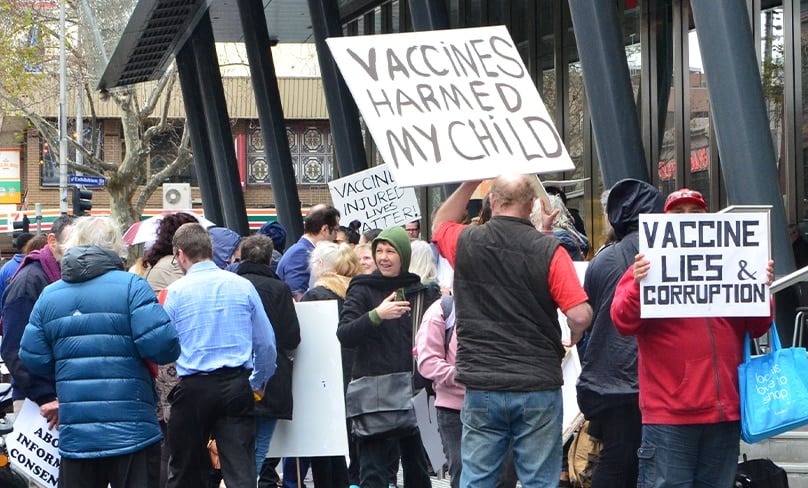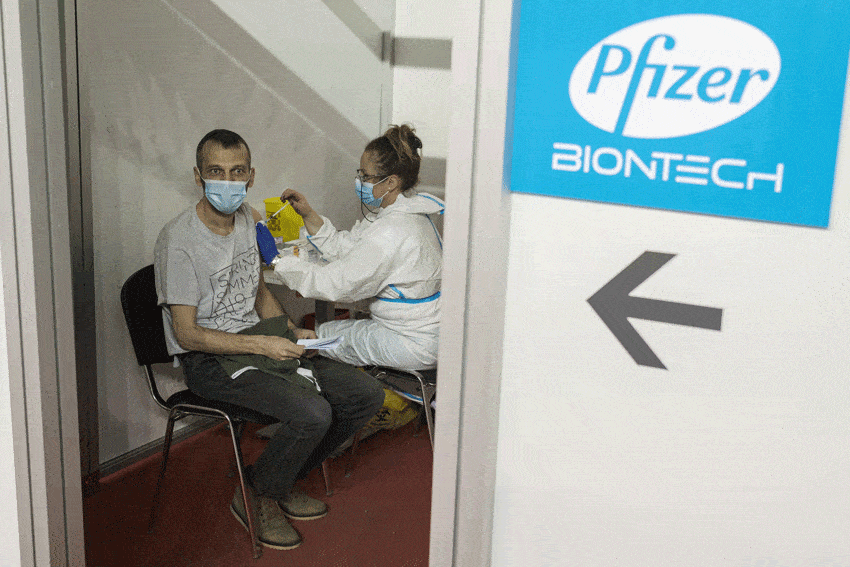
The controversies of other cultures often look weird and dumb to those who live in another time and place.
So, for instance, when we read Paul talking to the Corinthians about the question of eating meat, many of us furrow our brows at what appear to us to be silly scruples in the Corinthian Church. What’s the big deal? If you like meat, eat it. If not, don’t. Why is Paul wasting time with some scrupulous weirdo’s obsession?
But if you step into Paul’s shoes, you see a whole new vision of things.
The problem, you see, was not veganism or fitness nuttery run amok, but a deep fear of offending God Almighty. In those days, you did not run down to the local grocery to get your meat from Giant Agricorp, Inc.
“If my being unvaccinated is the cause of my brother’s death, I will be vaccinated, lest I cause my brother to die.”
The meat for sale in the agora had just been freshly killed in a local shrine to Apollo, Zeus, Athena, or some other pagan deity. It had been offered in sacrifice to a god—and the gods of the pagans were demons, by Christian reckoning.
So to eat the flesh of an animal offered to demons was, some Christians feared, to participate in the worship of that demon. Consequently, some with extremely sensitive consciences not only would not eat meat, but sat in severe judgment of those who did.
What to do?
That is what Paul addresses in 1 Corinthians 8. And his answer is a masterpiece of Catholic pastoral wisdom. On the one hand, he assures the Corinthians (following Jesus himself) that all foods are clean and a gift of God to be enjoyed with thanksgiving to him.

But then he goes on to add something very important. Just as those who like their burgers need not fear the judgment of the scrupulous, so those who enjoy Christian liberty must show consideration for those of tender conscience lest they tempt them to sin.
And so, though he knows himself to be free to eat whatever he pleases, Paul subjects his own freedom to the law of love for his neighbor and concludes, “[I]f food is a cause of my brother’s falling, I will never eat meat, lest I cause my brother to fall” (1 Corinthians 8:13).
I think of this constantly as I watch Catholics arguing with each other about things like vaccine and mask requirements.
Here’s the deal: some people cannot be vaccinated for various medical reasons. Others are at heightened risk from COVID due to various factors such as suppressed immunity, age, illness, etc.
“But even though I’m vaccinated, I can still be exposed and carry the virus to, for instance, people in my parish.”
In addition, the bigger the population of unvaccinated there is, the more likely the virus is to evolve into something deadlier and more infectious.
Therefore, common decency and consideration for the vulnerable says, “If my being unvaccinated is the cause of my brother’s death, I will be vaccinated, lest I cause my brother to die.”
Note that such thinking is Other-Centered, not Me-Centered, just like Paul. Paul knows his rights perfectly well.
But he foregoes those rights out of consideration for the weaker brother. His thought, always, is about how to love his neighbour, not about how to assert his rights.

We are to do the same. So, even if we are vaccinated, we are to think first always of our neighbour. This is why rubbish about “Not living in fear” is narcissistic nonsense.
The question is not whether I am afraid. I’m not. I’ve been vaccinated and I have little to fear from COVID.
But even though I’m vaccinated, I can still be exposed and carry the virus to, for instance, people in my parish.
So I think first of them and wear a mask indoors even though I am at little risk for the disease myself.
“We are talking about a temporary situation in which we are called, as Christians, to rise to the occasion by putting the good of others, not our rights, first.”
For the same reason, if I were unvaccinated for some reason, I would forego my right to attend the liturgy during a Pandemic surge, not out of fear for myself, but out of consideration for other unvaccinated people.
The point is this: the perpetual focus on Me, My Rights, My Oppression, Myself is not the gospel.
It is, quite simply, selfish and foreign to the mind of Christ. We are talking about a temporary situation in which we are called, as Christians, to rise to the occasion by putting the good of others, not our rights, first.
And the paradox is that as we seek first his kingdom and his righteousness, everything else, including an end to the Pandemic, will be added as well.
Related:
